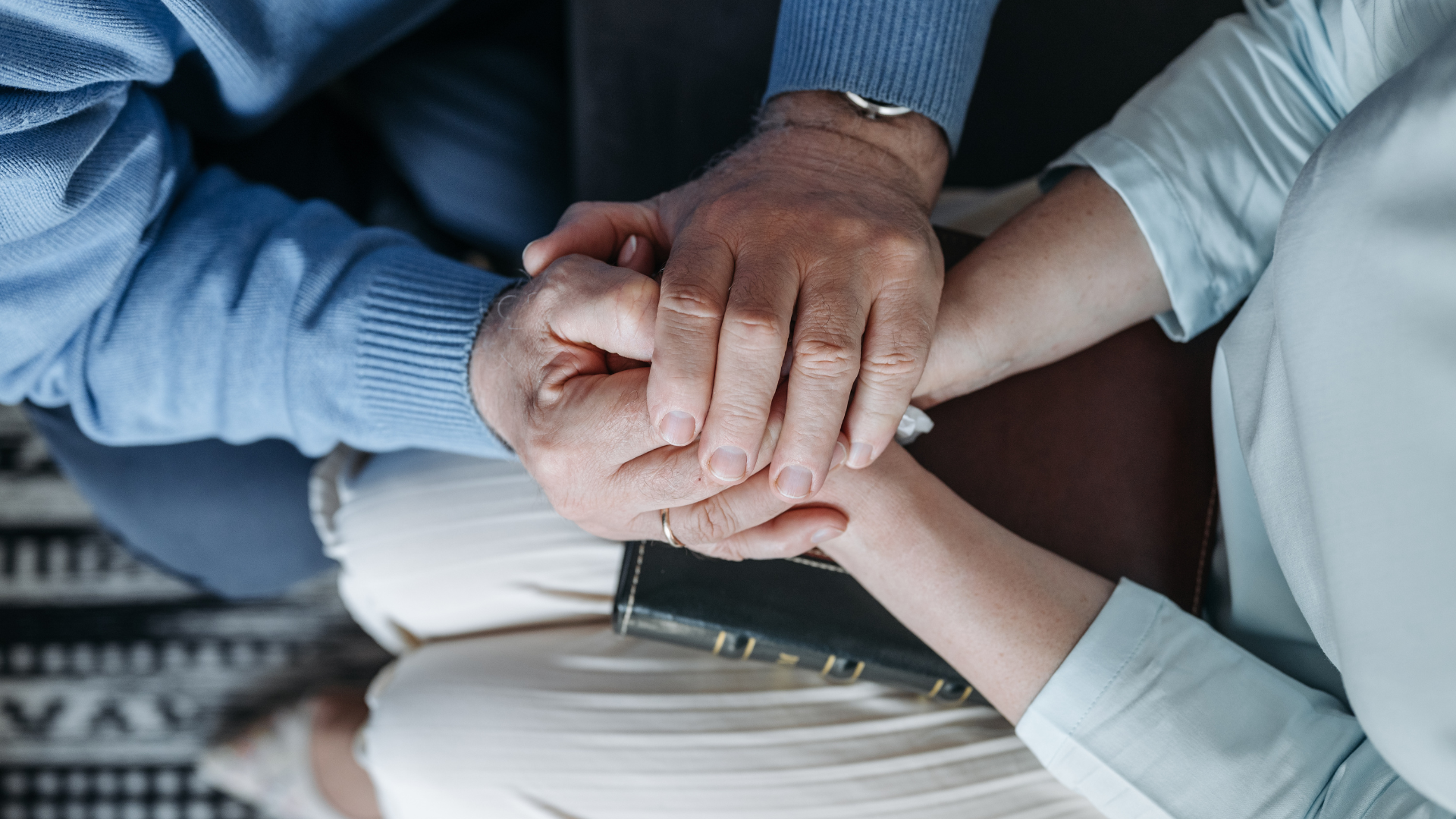How to Support Your Partner Through Grief: A Therapist’s Guide
Grief is one of life’s most painful experiences. When your partner is grieving, you may feel unsure of what to say or do. You want to be supportive, but it’s hard to know how to truly help.
Whether your partner is mourning the loss of a loved one, experiencing a miscarriage, or going through any other significant life loss, the emotional weight can be heavy for both of you. As therapists often explain, grief is not something to fix. It’s something to move through, and your support can make all the difference.
If you’re wondering how to support your partner through grief, this guide offers therapist-informed insights and gentle, actionable advice.
Respect their grieving process.
Grief is not linear, and it doesn’t look the same for everyone. Some people cry every day. Others may go numb or throw themselves into work or routines. Your partner may want to talk about their loss in detail one day and avoid it completely the next.
All of these responses are normal.
One of the most important things you can do is allow your partner the space to grieve in their own way. This means resisting the urge to rush them through their feelings or set expectations for how or when they should “feel better.” There is no timeline for grief. It may come in waves and change over time.
Your partner’s personality, cultural background, and past experiences all play a role in how they cope with loss. Some people find comfort in rituals or spiritual practices. Others may withdraw and need more time alone. Try not to take their behavior personally, even if it feels unfamiliar. Grief often impacts a person’s ability to engage in everyday conversation or express affection the way they usually would.
If your relationship feels different during this time, remind yourself that this shift is temporary. The person you love is still there, even if they are moving through a difficult emotional space. Your quiet patience and ongoing support help create the safety they need to feel whatever they are feeling, when they are ready.
Above all, remember that grieving is a deeply human process. It requires compassion, time, and acceptance. By meeting your partner where they are, not where you expect them to be, you show them that they are not alone.
Be there without needing to “fix” it.
When your partner is grieving, the most helpful thing you can do is simply be present. You don’t need to solve their pain or come up with the perfect words. Just being there, sitting beside them, holding space, and allowing them to express what they feel can be incredibly comforting.
Therapists who specialize in grief counseling often stress that silence can be just as powerful as words. Your steady presence shows them they are not alone.
Acknowledge their loss with compassion.
One of the most supportive things you can do for a grieving partner is acknowledge their pain. Say their loved one’s name. Ask how they are doing. Let them know that their feelings are valid.
Avoid phrases that minimize grief, like “They’re in a better place” or “Time heals all wounds.” Instead, try a simple and honest expression like “I’m so sorry. I’m here for you.” These words offer validation and emotional safety.
Offer support with daily life.
Grief can make even simple tasks feel overwhelming. You can support your partner by offering to take care of everyday responsibilities like cooking, cleaning, running errands, or managing appointments.
These small acts of service can ease their mental load and show that you care tangibly. If you're unsure what would help, gently ask, “What’s something I can take off your plate today?”
Encourage gentle self-care.
When someone is grieving, their basic needs can often fall to the side. Encourage your partner to care for themselves in small, manageable ways, and do so without applying pressure.
This might include going for a short walk together, preparing a nourishing meal, or creating space for rest. A kind suggestion like “Let’s step outside for a few minutes of fresh air” can go a long way toward helping them reconnect with their body and the present moment.
Know when to suggest professional support.
Sometimes the most supportive thing you can do is help your partner access grief counseling. If their sadness becomes overwhelming or they’re struggling to cope, a licensed therapist can help them process their grief in a safe, structured way. You can gently suggest it by saying something like, “I think a grief therapist could really help you carry this. I’ll be with you every step of the way.”
Take care of your own emotional health.
Supporting a grieving partner can be emotionally challenging for you too. It’s okay to have your own feelings, and it’s healthy to talk to someone about them. Whether you seek individual therapy or connect with friends and family, taking care of yourself will help you show up with more patience and compassion.
How Mud Hook Mental Health Can Support You and Your Partner
At Mud Hook Mental Health, we understand that grief affects not just individuals but relationships too. Whether you or your partner are struggling with the weight of loss, our compassionate team is here to help you navigate it together.
We offer individual therapy for those processing grief and couples counseling for partners who want to stay connected through the healing process. Our therapists provide a safe and supportive space where emotions can be explored without judgment. We tailor our approach to your unique needs, helping you rebuild emotional strength and connection at your own pace.
Located in Wylie, Texas, we are committed to making mental health care accessible, welcoming, and personalized. If you are ready to begin healing or simply need guidance on how to support someone you love, we are here for you.
If you or your partner is navigating grief and looking for support, schedule your appointment with Mud Hook Mental Health and take the first step toward healing together.
Begin Your Healing Journey with Support
Walking through grief as a couple can feel overwhelming, but reaching out for help is a powerful step forward. It shows that you’re committed to understanding each other and growing together, even in life’s most difficult seasons.
At Mud Hook Mental Health, we provide a compassionate space where you and your partner can process grief, strengthen your connection, and begin to heal. Whether you're navigating recent loss or ongoing emotional pain, we’re here to guide you with care and clarity.
If you're ready to feel supported and seen, schedule your appointment today and let us walk alongside you on the path toward healing.




